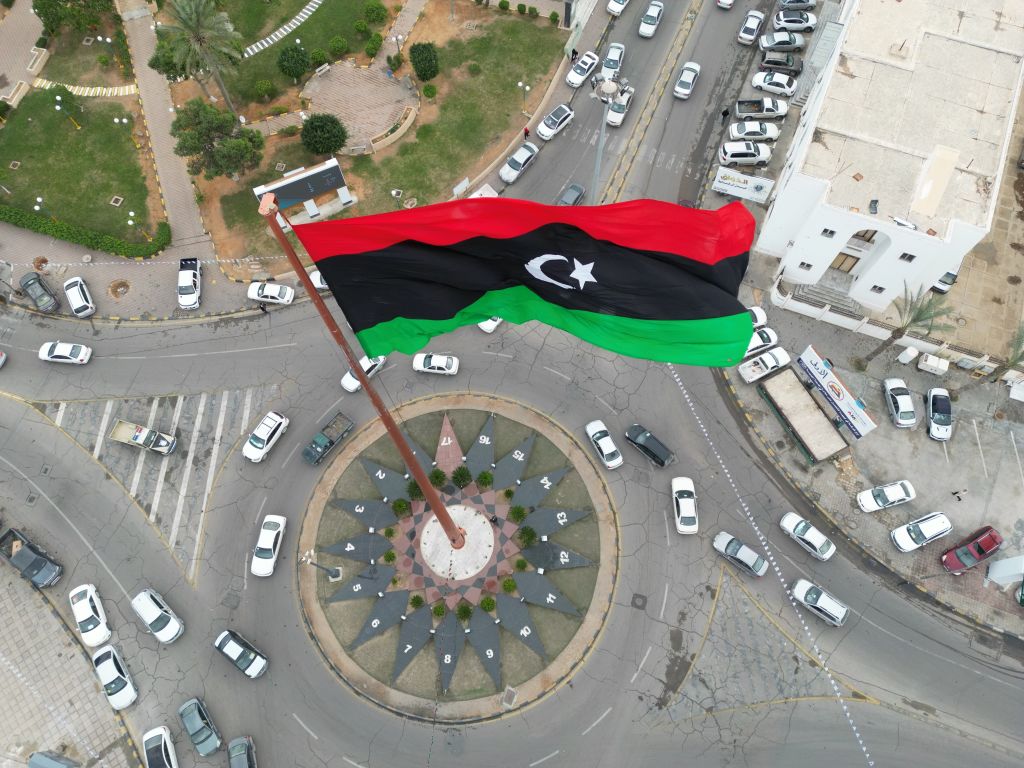U.N. nuclear watchdog says 2.5 tons of uranium is missing from Libyan site


A free daily email with the biggest news stories of the day – and the best features from TheWeek.com
You are now subscribed
Your newsletter sign-up was successful
At least 2.5 tons of natural uranium has gone missing from an uncontrolled site in Libya, Reuters reported Wednesday.
The news was revealed to Reuters in a statement from the International Atomic Energy Agency (IAEA) — the United Nations' nuclear watchdog group. The IAEA told the outlet that "10 drums containing approximately 2.5 tons of natural uranium previously declared by [Libya] ... as being stored at that location were not present at the location."
While the exact site of the storage facility is unclear, the IAEA said that they had originally planned to inspect the area last year, but had to postpone that review "because of the security situation in the region." The inspection was finally carried out on Tuesday, when it was discovered that the uranium was missing.
The Week
Escape your echo chamber. Get the facts behind the news, plus analysis from multiple perspectives.

Sign up for The Week's Free Newsletters
From our morning news briefing to a weekly Good News Newsletter, get the best of The Week delivered directly to your inbox.
From our morning news briefing to a weekly Good News Newsletter, get the best of The Week delivered directly to your inbox.
The IAEA will "carry out 'further activities' to determine the circumstances of the uranium's removal from the site, which it did not name, and where it is now," it told Reuters. The agency added that the potential disappearance of nuclear material "may present a radiological risk, as well as nuclear security concerns."
The IAEA confirmed that the site was not under the control of the Libyan government. The mystery emerged as Libya continues to rebuild its society following the end of a bloody civil war in 2020. While the country has attempted to enact reforms to push itself towards a democracy, Libya remains rocked by political instability.
Reuters noted that "political control has been split between rival eastern and western factions," since 2014, with no calm even after the end of the conflict. The United Nations installed an interim Government of National Unity (GNU) in 2021, which was designed to hold Libya over until a new round of democratic elections. However, amidst warring rivalries, these elections continue to be delayed.
A free daily email with the biggest news stories of the day – and the best features from TheWeek.com
Justin Klawans has worked as a staff writer at The Week since 2022. He began his career covering local news before joining Newsweek as a breaking news reporter, where he wrote about politics, national and global affairs, business, crime, sports, film, television and other news. Justin has also freelanced for outlets including Collider and United Press International.
-
 The Olympic timekeepers keeping the Games on track
The Olympic timekeepers keeping the Games on trackUnder the Radar Swiss watchmaking giant Omega has been at the finish line of every Olympic Games for nearly 100 years
-
 Will increasing tensions with Iran boil over into war?
Will increasing tensions with Iran boil over into war?Today’s Big Question President Donald Trump has recently been threatening the country
-
 Corruption: The spy sheikh and the president
Corruption: The spy sheikh and the presidentFeature Trump is at the center of another scandal
-
 Nobody seems surprised Wagner's Prigozhin died under suspicious circumstances
Nobody seems surprised Wagner's Prigozhin died under suspicious circumstancesSpeed Read
-
 Western mountain climbers allegedly left Pakistani porter to die on K2
Western mountain climbers allegedly left Pakistani porter to die on K2Speed Read
-
 'Circular saw blades' divide controversial Rio Grande buoys installed by Texas governor
'Circular saw blades' divide controversial Rio Grande buoys installed by Texas governorSpeed Read
-
 Los Angeles city workers stage 1-day walkout over labor conditions
Los Angeles city workers stage 1-day walkout over labor conditionsSpeed Read
-
 Mega Millions jackpot climbs to an estimated $1.55 billion
Mega Millions jackpot climbs to an estimated $1.55 billionSpeed Read
-
 Bangladesh dealing with worst dengue fever outbreak on record
Bangladesh dealing with worst dengue fever outbreak on recordSpeed Read
-
 Glacial outburst flooding in Juneau destroys homes
Glacial outburst flooding in Juneau destroys homesSpeed Read
-
 Scotland seeking 'monster hunters' to search for fabled Loch Ness creature
Scotland seeking 'monster hunters' to search for fabled Loch Ness creatureSpeed Read
